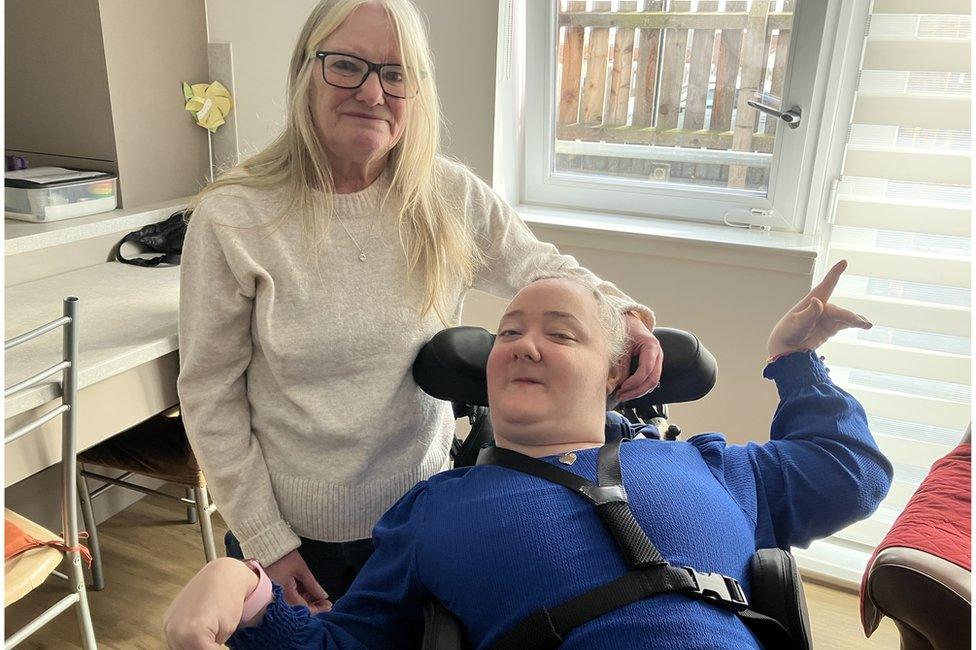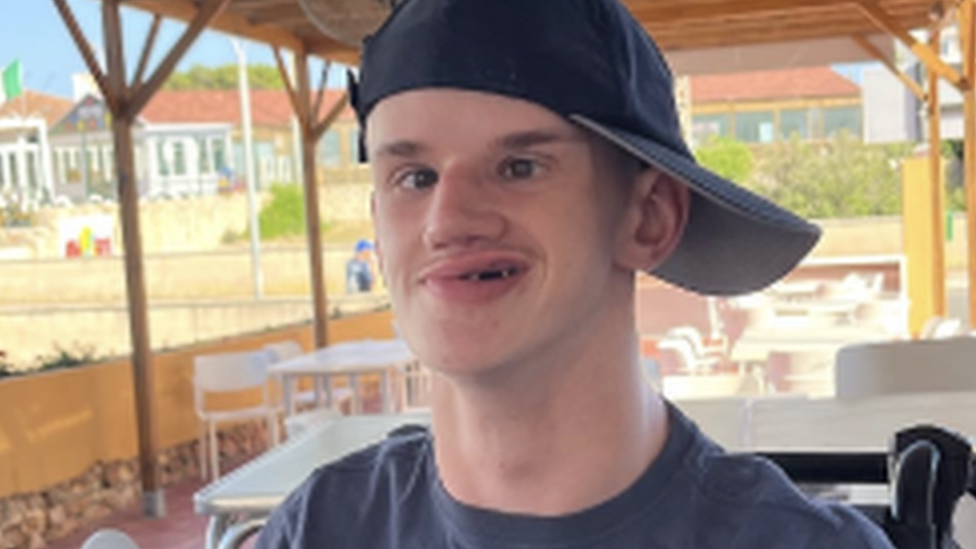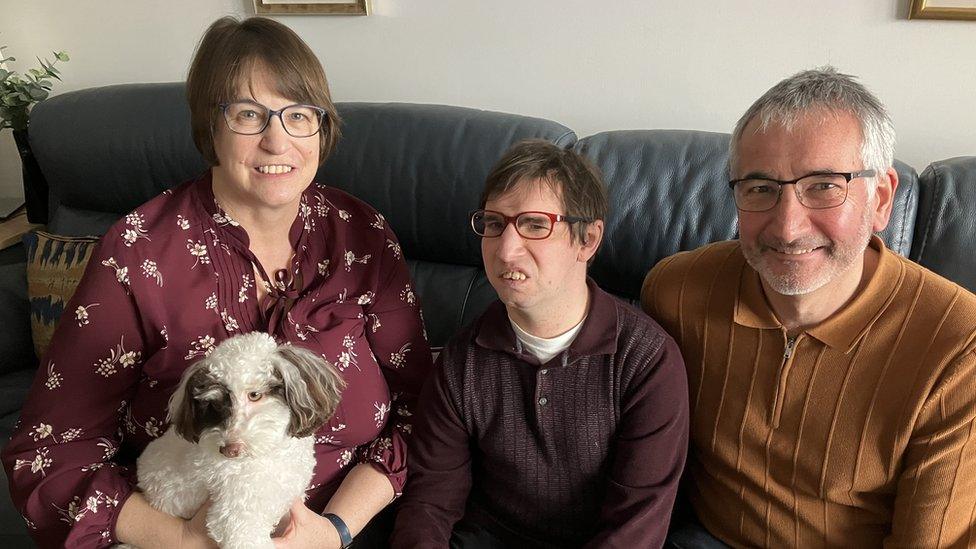Disabled people facing ‘significant’ cuts to support
- Published

Sandra McMurdo has cared for daughter Margaret for 35 years
Disabled people and their families are facing "significant reductions" in access to support workers, day care services and respite care, new research has found.
A study by academics, including the University of Glasgow, interviewed hundreds of families across the UK. It warned there were fewer services since the Covid pandemic and the cost-of-living crisis, and a shortage of staff was making the situation even worse.
Cuts to at-home support
Sandra McMurdo has looked after her disabled daughter Margaret at home for 35 years, but due to her complex medical needs she also had the support of two carers for 24 hours a day.
Shortly after Sandra was diagnosed with lung cancer last year, she was told the at-home care support for Margaret was being cut. She said no reason was given and they were given just six weeks' notice.
"We tried to get them to stay on for a transition period, or even until we'd found another service, bit it was just 'no'," she told BBC Scotland.
Sandra, who lives in Dundee, says they looked at care homes but there were none available. Margaret has now moved into an assisted living facility miles away from her family home.
"It's disappointing that it's come to all this, especially after looking after her on my own for all those years," she says.
Dundee Health and Social Care Partnership said, while it was not appropriate to discuss individual cases, there are "instances when external service providers withdraw and the partnership will always discuss alternative arrangements with families".
'There's just no spaces, there's no services'

Reece Thomson requires one-to-one care
In Glasgow, Sharon Thompson has a budget to buy care for her son Reece but she is not able to spend it due to staff shortages and a lack of suitable activities.
Reece has various physical and learning disabilities and requires one-to-one care which Sharon does on her own.
"There's just no spaces, there's no services, there's nothing out there where we can go and further his basic skills or give him structure to his day which he needs," she says.
"I've got a budget, there's plenty of money there to be spent."
She says Reece attending school is her "lifeline" - and that when he leaves this year she will "have to give up everything" to become his full-time carer.
"Everything revolves around Reece, and I've got two younger boys who've become young carers as well. It's not fair."
A spokesperson for Glasgow City Health and Social Care Partnership said there was a "variety of care and support services provided" to support young people and their families across Glasgow, but that "due to the specialist nature of some of these services there tends to be a smaller group of providers than more generic care and support services".
They added: "Nationally, there is an acute staffing crisis across social care which is impacting on all of these areas. Work is continuing at a local and national level to try and address this, however there is no easy fix."
'Who's gonna be there to support us'

Alasdair has complex physical and learning disabilities
Yvonne Russell, whose son Alasdair has complex physical and learning disabilities, says he "really suffered mentally and emotionally" during lockdown and its aftermath as all day centres for disabled adults closed.
"When they did come back it was just too much of a change for him because he'd lost all those socialisation skills and he was completely overwhelmed," she says.
Yvonne says that although day centres in south Lanarkshire eventually reopened in October 2022, after a "huge battle" by families, some evening activities such as discos, still haven't resumed.
And now, she says, funding for a vital support service has been cut by the council.
The service, called Pamis, is an organisation that provides support to families with profound and multiple learning disabilities.
"You have to deal with peg feeding [feeding via a tube] if your child can't swallow, with double incontinence, with a lack of speech," she said.
" For older families like us, who are getting on a bit in life and finding it a struggle to cope with their child living at home, Pamis are the ones supporting them to seek funding for the child to have an independent life.
"Who's gonna be there to support those families?"
South Lanarkshire Council said it gave Pamis the opportunity to tender to provide these service and were "disappointed" that the organisation "rejected" this.
They added: "As required by legislation, in order to continue to work with the council, Pamis were invited to be part of a transparent and competitive tender process - we were surprised that Pamis chose not to do that."
However, Pamis told BBC Scotland that the tender offered was "not compatible with what families in the area require".